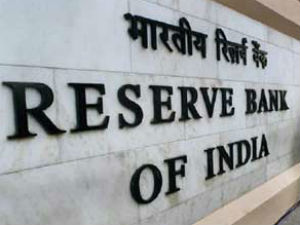RBI unveils framework for identifying systemically important banks

"Based on their systemic importance scores in ascending order, banks will be plotted into four different buckets and will be required to have additional Common Equity Tier 1 capital requirement ranging from 0.20 per cent to 0.80 per cent of risk weighted assets, depending upon the bucket they are plotted into," RBI said in a statement.
"Based on the data as on March 31, 2013, it is expected that about 4 to 6 banks may be designated as domestic systemically important banks (D-SIBs) under various buckets," it said.
D-SIBs will also be subjected to differentiated supervisory requirements and higher intensity of supervision based on the risks they pose to the financial system, it said.
Banks which could be categorised under this segment-- SBI, ICICI Bank, Punjab National Bank, Bank of Baroda etc.
The categorisation would be done beginning August next year and review would be done every year.
"The banks will be selected for computation of systemic importance based on the analysis of their size (based on Basel III Leverage Ratio Exposure Measure) as a percentage of GDP. Banks having a size beyond 2 percent of GDP will be selected in the sample," it said.
The indicators which would be used for assessment are size, interconnectedness, substitutability and complexity, he said.
As foreign banks in India have smaller balance sheet size, none of them would automatically get selected in the sample, it said.
However, foreign banks are quite active in the derivatives market and the specialized services provided by these banks might not be easily substituted by domestic banks, it said, adding, it is appropriate to include a few large foreign banks also in the sample of banks to compute the systemic importance.
"During the recent global financial crisis, it was observed that problems faced by certain large and highly interconnected financial institutions hampered the orderly functioning of the financial system, which in turn, negatively impacted the real economy," RBI said.
Government intervention was considered necessary in many jurisdictions to ensure financial stability, it said.
The cost of public sector intervention and consequential increase in moral hazard require that future regulatory policies should aim at reducing the probability of failure of SIBs and the impact of the failure of these banks, RBI added.
PTI































